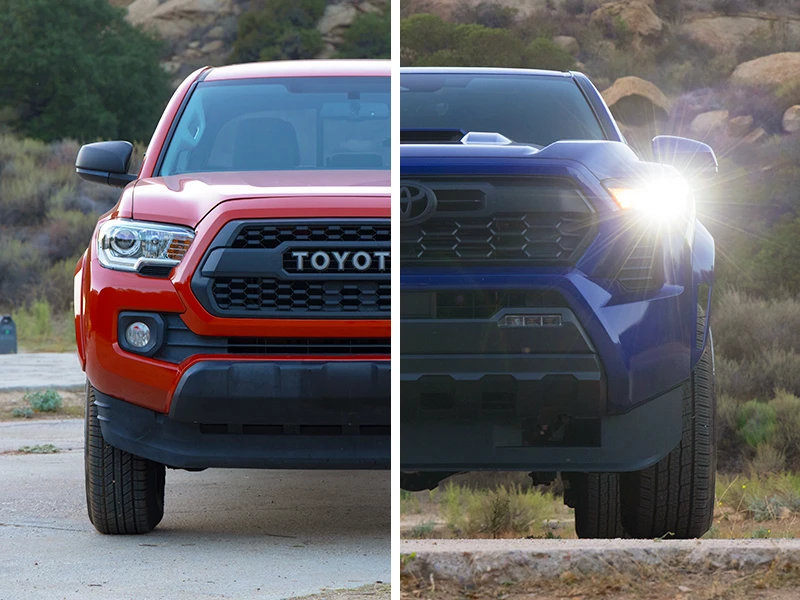
The differences and similarities of these two legendary models.
With thousands of vehicles in our inventory, we’re here to help make car research easier for you. We’ve partnered with car-review experts from Edmunds to weigh in on what matters most when you’re looking to buy a truck or car.
***
The midsize Toyota Camry and its smaller sibling, the compact Toyota Corolla, are some of the longest-running nameplates on the market. There's a good reason for that, as both cars have been consistently near the top of their class and are well known for their longevity.
But if you're new to car shopping, or aren't as familiar with Toyota's models, you might have a hard time differentiating the two. With this in mind, we'll highlight the differences between the 2024 Toyota Camry and the 2024 Toyota Corolla, beyond the obvious size difference. We've chosen these late models because they're relatively new and showcase some of the latest features that both vehicles have to offer.
Toyota Camry Basics
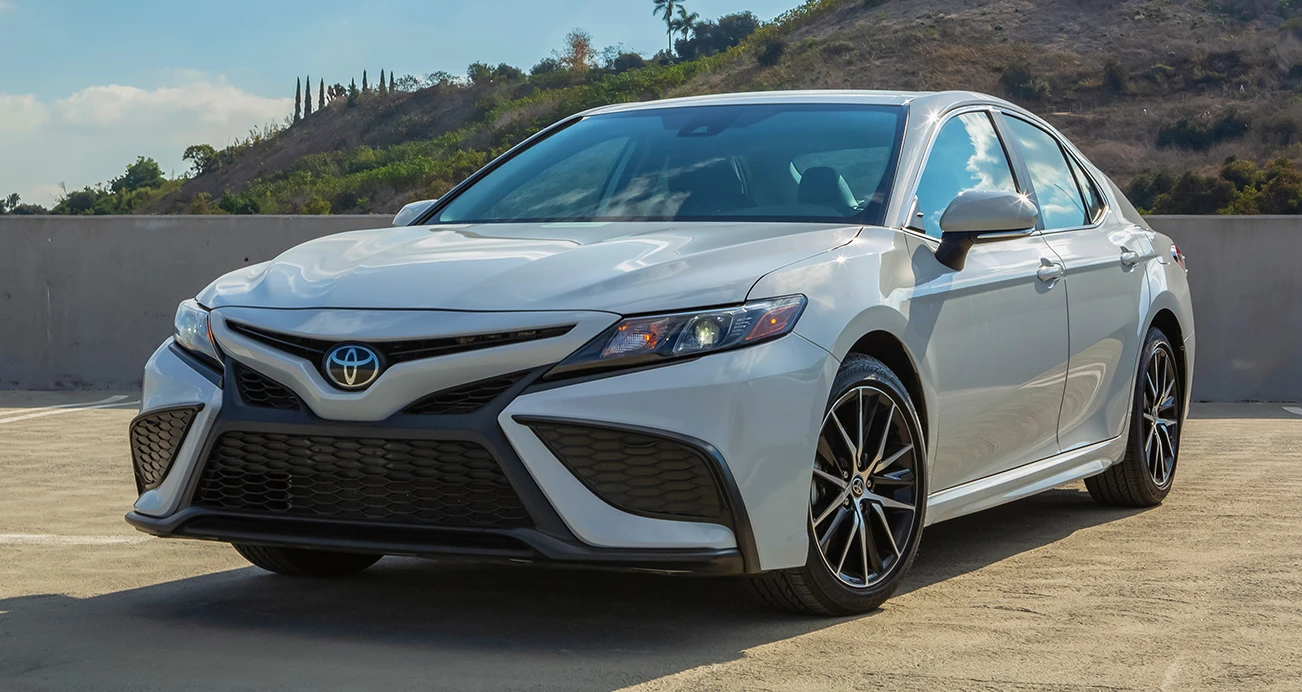
The eighth-generation Camry debuted for the 2018 model year and was produced until 2024. It is considered a midsize sedan. Most of its trim levels are powered by a 2.5-liter four-cylinder engine, producing 203 horsepower and 184 lb-ft of torque. Available on XLE and XSE trims, and standard on the sporty TRD, was a larger 3.5-liter V6 engine, producing 301 horsepower and 267 lb-ft of torque. There is also a Camry Hybrid variant, for those less interested in performance and more into fuel economy.
We think the Camry's strengths include good visibility, a roomy cabin, effective climate control, and ease of installing a child seat in the rear. On the other hand, we're not so fond of the coarse-sounding four-cylinder engine, elevated levels of wind and road noise at highway speeds, and lackluster base audio system.
Toyota Corolla Basics
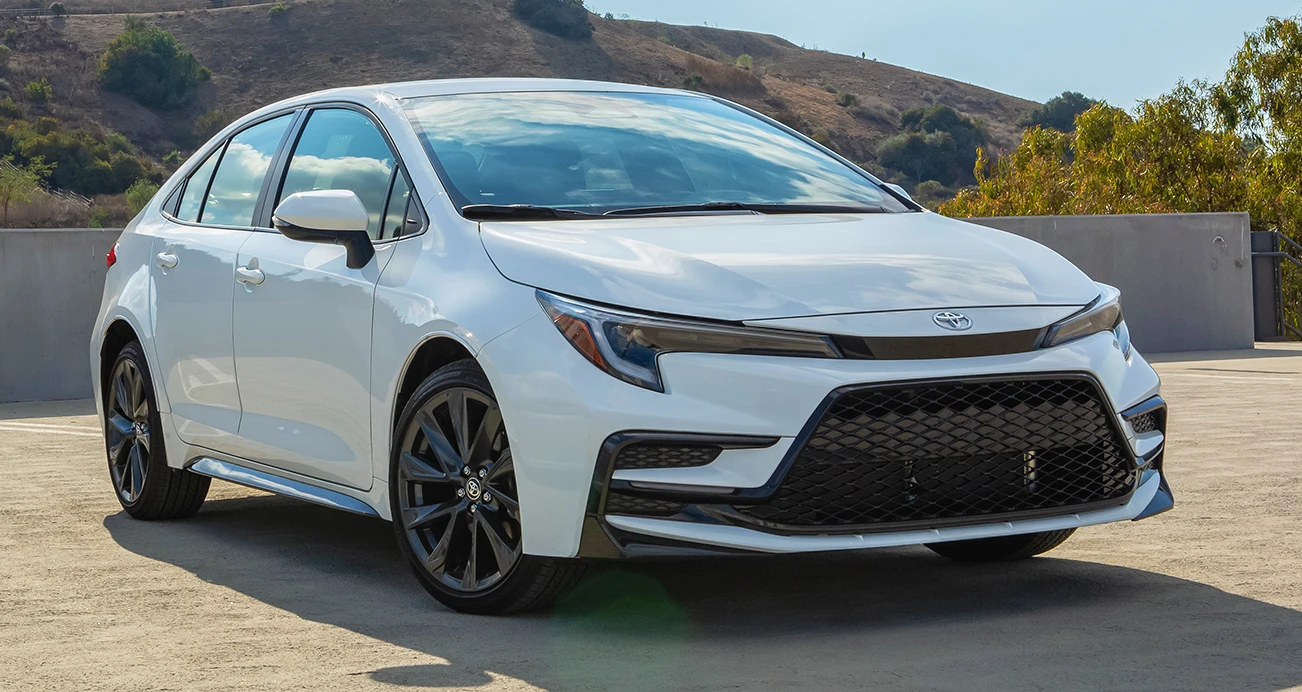
The 12th-generation Corolla debuted for the 2020 model year and is still produced as of this writing. It is considered a compact sedan, but it is also available as a hatchback, for more cargo utility. Most Corolla trims feature a 2.0-liter four-cylinder engine that makes 169 horsepower and 151 lb-ft of torque. Like the Camry, the Corolla has both a sporty GR Corolla variant (hatchback only) and a Corolla Hybrid option (sedan only).
We like the Corolla's interior layout with easy-to-use controls, its good real-world fuel economy, and its comfortable ride quality. This is partially offset by sluggish acceleration, above-average road noise, and less rear headroom than its competitors.
Toyota Camry vs. Corolla: Similarities
Both cars are available as sedans, though the Corolla is also available as a hatchback, which we'll briefly discuss later. Both are comfortable and fuel-efficient and seat up to five people. In terms of dimensions, both sedans are roughly the same height and both front headroom and front legroom are nearly identical. If you’re comparing other popular sedans, our Honda Civic Si vs. Honda Civic Sedan guide takes a closer look at how these two Honda models stack up.
Toyota Camry vs. Corolla: Differences
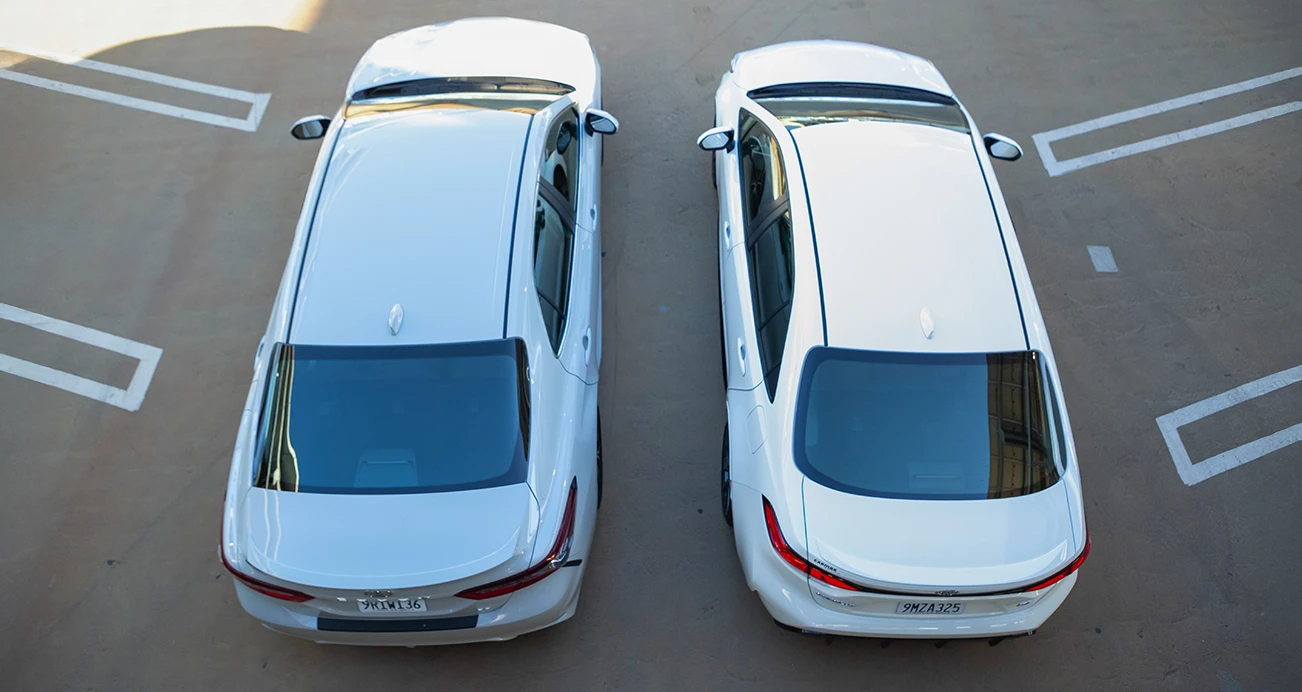
Overall size: Since the Camry is considered a midsize vehicle, it is larger in many respects than the compact Corolla. This translates to a longer length and width on the Camry versus the Corolla.
Rear legroom: If you often carry rear passengers, you should know that the Camry has more rear legroom than the Corolla (38 inches vs. 34.8 inches). That also means it's easier to get rear-facing car seats into the rear seat of the Camry, with less compromise for the front-seat passengers. The Corolla hatchback has the least amount of rear legroom, with roughly five inches less legroom than the Corolla sedan and a whopping eight inches less than the Camry.
Cargo space: The Camry has a slightly larger trunk (15.1 cubic feet) than the Corolla sedan (13.1 cubic feet). If you need to carry long items, both vehicles have 60/40-split fold-down rear seatbacks on all trims. However, if you're looking for the most cargo capacity between these two models, the Corolla hatchback takes the win here, with its 17.8 cubic feet of cargo space.
Fuel economy: When comparing base engines on both sedans, the Corolla is slightly more fuel-efficient than the Camry, with combined EPA estimates of up to 35 mpg and 32 mpg
, respectively. The opposite is true when it comes to the hybrid models, with the Camry getting up to an EPA-estimated 52 mpg in combined driving and the Corolla getting up to 50 mpg. In our Edmunds' real-world testing, the gas-only models met or exceeded their fuel economy numbers, but the hybrid models came up a bit short of their estimates. However, our test features a good portion of highway driving, which is not a standout area for hybrids, so your mileage may vary.All-wheel drive: For those in need of an all-wheel-drive (AWD) vehicle for added traction in winter weather, this feature was available in the Camry on all trims, minus the TRD version. The Corolla is front-wheel-drive only, except for the sporty GR Corolla, which is significantly more expensive and only available with a manual transmission.
Cost: Keep in mind that pricing can vary based on several factors such as trim, mileage, and condition, but overall, the Camry typically costs more than the Corolla. Using the timeframe of April through September 2024, the average Camry cost roughly $6,200 more than the average Corolla, according to CarMax pricing data
.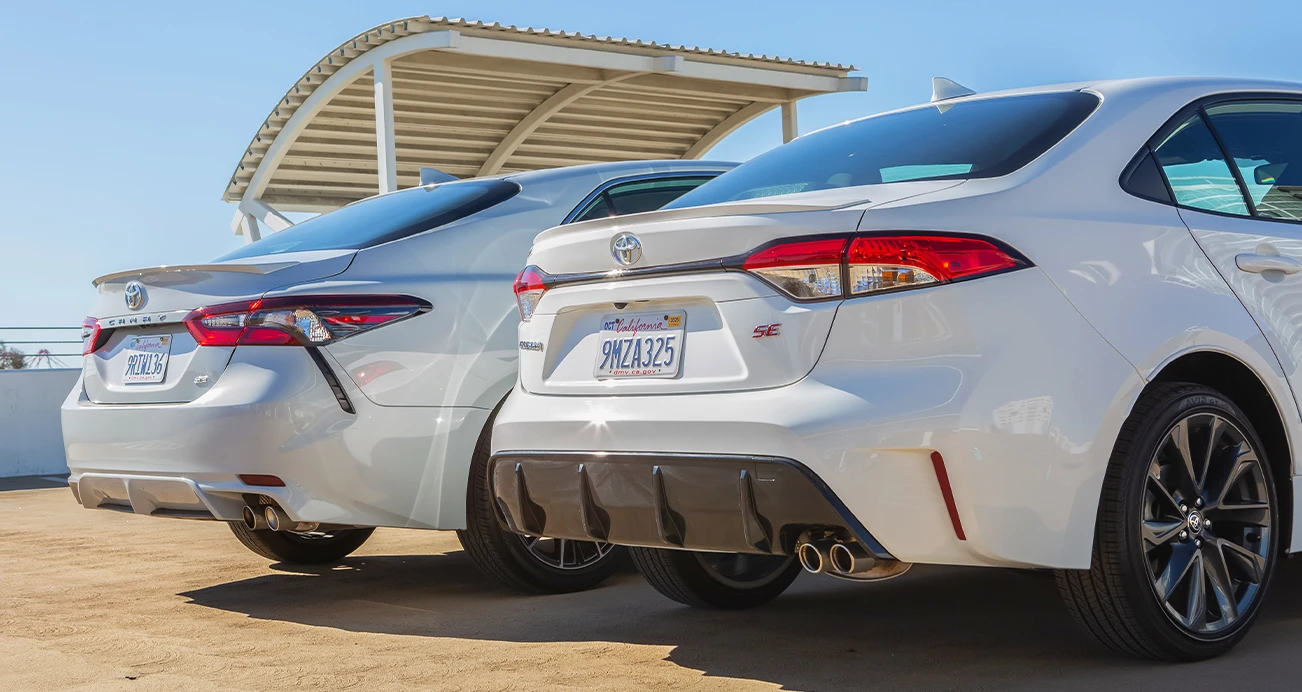
Which one should you choose?
Assuming price is not a limiting factor, if you want a sedan with solid power, good rear legroom and greater refinement, the Camry is the way to go.
If you're looking for a car with a more compact footprint, and better fuel economy, the Corolla is worth considering. Plus there's always that Corolla hatchback if you prefer that body style.
Ronald's take
The way I see it, you really can't go wrong with either vehicle. If it was me, I'd lean toward the Corolla hatchback, considering my last three cars have been hatchbacks. But I recognize this may not fit everyone's needs.
The final choice will be determined by your budget, your travel needs (passenger comfort, driving feel, fuel economy, etc.), and your preference on which model's styling appeals to you more. If your budget is top of mind, take a look at our best used car deals of 2025 to find great options across a range of makes and models.
